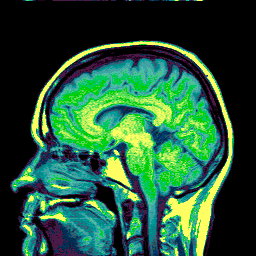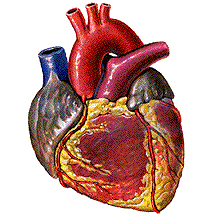Blog Archive
Monday, November 1, 2010
19. Alcohol, Drugs and Psychosis
- Street drugs and/or alcohol are not a primary cause of psychosis; they may help to worsen symptoms, increase the person's vulnerability to relapses and rehospitalizations, and/or impair the protective effects of anti-psychotic medications.
- Street drugs or alcohol can complicate the treatment of the person with psychosis because they may be more difficult to engage in treatment programs, vocational programs, or therapy. There are also financial, legal, health, housing, interpersonal, and family problems associated with a person with mental illness using street drugs and/or alcohol.
- Dual diagnosis is defined as the combination of a major mental illness and a substance abuse disorder.
- Person with psychosis may use drugs and/or alcohol due to:
- boredom
- inducing pleasure
- depression or anxiety
- increase opportunities for social contact
- side effects of medications
- temporary relief from symptoms of the illness

from http://www.hopeforanxiety.com/images/AnxietyAnimated.gif
 |
| from http://www.unodc.org/images/odccp/26june0709/animated_logo.gif |
Assessing alcohol and drug use:
- If possible, discuss with your family member's mental health professional, doctor, etc. and consult on how you can help your family member or friend who is using alcohol and/or drugs.
- Therapeutic approach is to avoid heavy confrontation and intense emotional interactions which can create additional stress and reactions in people with psychosis. A non-confrontational approach based on education, support, and discussion is more effective, especially in one-to-one and/or group setting. Avoid judgmental and/or blaming statements. Be willing to listen to the person rather than interpret behavior.
- Talk to your family member and ask in a straight-forward, matter of fact way if they are using alcohol and/or drugs. However, denial of alcohol and/or drug use is no guarantee that your family member is not abusing.
- Look for worsening of symptoms that cannot be accounted for by medication non-compliance or current life stressors.
- Look for noticeable decline in functioning
e.g.failing to meet expectations that were formerly met (being late, sleeping in, not doing house chores, etc) - Alcohol or drug paraphernalia (e.g. rolling papers, pipes, cut plastic tubes for snorting cocaine, small bags for storing drugs, etc)
- Financial difficulties (i.e. not having any money or repeated efforts to borrow money from friends and families).
- New set of friends in a short period of time.
 |
| from http://www.capriogroup.com/webstuff/Images/AnimatedGIFs/Animated-CartoonDoctor.gif |
 |
| from http://i37.photobucket.com/albums/e65/KAGEnoSORA/Animation7.gif |
 |
| from http://mindmillion.com/images/money/01-money-burn-anim.gif |
END!
18. Suicide
The following information was provided by Suicide Attempt Follow-up Education & Research Program (SAFER).
WHERE TO LOOK FOR HELP
SUICIDE FACTS: HOW TO RECOGNIZE SUICIDE RISK HOW TO HELP YOURSELF IF YOU ARE IN A SUICIDAL CRISIS
Many people think about suicide in their lives. You possibly have a friend or relative who has thought about suicide.You, too, may have occasional feelings of hopelessness. Suicide crosses all social, economic and cultural boundaries. A significant percentage of people who complete suicide appeared to be functioning well prior to their death.
The rate for men over 65 is also high. Women have a lower rate of death by suicide, but current trends show their attempts are becoming more lethal.
Four out of five people who complete suicide have previously expressed suicidal thoughts. It is very important to take all suicide thoughts and attempts seriously:
If you are in crisis, you deserve help.
LISTEN
FACT: Suicidal people, even if they seem to have it all, may not feel okay about themselves. They feel they can't meet their own expectations.
FACT: Most suicidal people want to end their pain and see death as the only way out.
FACT: Talking with them about suicide doesn't increase their risk. He or she will more likely feel a sense of relief that finally someone is allowing them an opportunity to talk.
FACT: Suicidal people feel hopeless, helpless, and worthless and usually require professional support.
FACT: Just because the suicidal person is unhappy, doesn't mean they are crazy.Most of us have felt despair at some time in our lives and may have been suicidal.
ARE THEY SUICIDAL?
CHECKLIST
What they're saying:
HOW TO HELP
School: A favourite teacher/coach, a school counselor, a principal or vice-principal
A minister or rabbi
A trusted adult
Departments close to your home
WHERE TO LOOK FOR HELP
- Family doctor
- School counsellor
- Crisis centers
- S.A.F.E.R.
- Mental Health Teams
- The Emergency Department of your nearest Hospital
- Religious counselor
 |
| from http://emmywidya.files.wordpress.com/2007/12/my-school-teacher-animated.gif?w=239&h=272 |
 |
| from http://i282.photobucket.com/albums/kk254/jacobhalstead123/Suicide/you-should-kill-yourself-animated.gif |
Many people think about suicide in their lives. You possibly have a friend or relative who has thought about suicide.You, too, may have occasional feelings of hopelessness. Suicide crosses all social, economic and cultural boundaries. A significant percentage of people who complete suicide appeared to be functioning well prior to their death.
The rate for men over 65 is also high. Women have a lower rate of death by suicide, but current trends show their attempts are becoming more lethal.
Four out of five people who complete suicide have previously expressed suicidal thoughts. It is very important to take all suicide thoughts and attempts seriously:
- Direct or indirect statements about death or suicide. History of previous suicide attempts.
- Recent traumatic loss (eg. Suicide death of a loved one)
- Any sudden change in behaviour or mood (eg. From being talkative and outgoing to becoming withdrawn).
- Depression (eg. crying, sleep and appetite disturbances, hopelessness).
- Finalizing affairs (eg. giving away possessions, making a will or saying good-byes).
- Increased use of drugs or alcohol.
 |
| from http://www.graphicsgrotto.com/animatedgifs/alcohol/images/agalcohol1.gif |
If you are in crisis, you deserve help.
LISTEN
- Be aware of warning signs of suicide and take them seriously.
- Discuss feelings openly and frankly.
- If you suspect they are suicidal ASK.
- Discussion is the first step in giving help.
- Show concern and understanding.
- Get involved in efforts to reach out for help.
- Be objective and nonjudgemental.
- Share responsibility by encouraging involvement of family and close friends.
- Help the person to focus on strengths rather than weaknesses.
 |
| from http://www.free4-all.co.uk/assets/images/DontCry02.gif |
- Expect emotional support.
- Look at past and current issues that may be contributing to your difficulties.
- Learn new problem-solving skills.
- Begin to take charge and feel less helpless.
- Find and build on your strengths.
- Begin to identify alternative options to suicide.
- There are other solutions.
 |
| from http://www.latenightwithjimmyfallon.com/assets_c/2010/10/7FW_Jimmy_mascara-thumb-350x197-14938.gif |
 |
| from http://www.design-warez.ru/uploads/posts/2010-02/1266397530_8468.gif |
FACT: Suicidal people, even if they seem to have it all, may not feel okay about themselves. They feel they can't meet their own expectations.
FACT: Most suicidal people want to end their pain and see death as the only way out.
 |
| from http://www.gifanatics.com/files/henk%201.gif |
FACT: Suicidal people feel hopeless, helpless, and worthless and usually require professional support.
FACT: Just because the suicidal person is unhappy, doesn't mean they are crazy.Most of us have felt despair at some time in our lives and may have been suicidal.
ARE THEY SUICIDAL?
CHECKLIST
What they're saying:
- Nothing goes right for me.
- Whatever, nothing matters anyway.
- I just can't take it anymore.
- It'll all be over soon.
- I wish I was dead.
 |
| from http://www.gifsoup.com/webroot/animatedgifs/333316_o.gif |
- Relationship break-up
- Family troubles
- History of being abused or depressed
- Feeling like a failure
- Feeling like there's no place to turn for help
- Sadness
- Lack of interest or energy
- Changes in eating, sleeping habits, or appearance.
- Any dramatic changes in behaviour, actions, or attitude
- Being unusually quiet or unusually aggressive/angry.
- Dropping out of hobbies, sports, school or job.
- Talking about death or cult figures who died by suicide.
- Taking risks (driving recklessly, unsafe sex)
Using alcohol or drugs a lot - Giving away possessions and saying good byes
 |
| from http://www.gifbin.com/bin/032010/1268914902_winter-car-crash.gif |
 |
| from http://www.amazing-animations.com/animations/women32.gif |
HOW TO HELP
- Learn the common clues that may indicate that your friend is suicidal.
- Let them know you care about them and want to help.
- LISTEN, LISTEN, LISTEN.
Ask questions about their feelings and let them do the talking. - Ask the question: Has it been so bad that you've thought of killing yourself?
- Try not to judge or argue, just understand.
- If you think they might harm themselves right now, don't leave them alone. Contact someone for assistance.
- Ask for help, even if they've asked you not to tell anyone. Remember: BETTER AN ANGRY FRIEND THAN A DEAD FRIEND.
- Continue to offer support and stay in contact with the person.Get support for yourself too.
- Don't promise to keep secrets or keep it confidential.Involve a trusted adult immediately. LISTEN, LISTEN, LISTEN
 |
| from http://i563.photobucket.com/albums/ss75/LadySandee/best-friends27.gif |
 |
| from http://www.threadbombing.com/data/media/2/happykillmore2yp1.gif |
School: A favourite teacher/coach, a school counselor, a principal or vice-principal
A minister or rabbi
A trusted adult
Departments close to your home
17. Aggression
Definition:
Verbal or physical acting out in a destructive, threatening or violent manner.
Causes:
SUCCESSFUL LIMIT SETTING
Keep it simple:
 |
| from http://nymag.com/daily/entertainment/2009/10/26/madmen1.gif |
Causes:
- Fear
- Misinterpretation of intent of others: person thinks they are in danger
- Too much stimulation
- Psychosis
- Drugs and alcohol: lower impulse control
- Loss of personal power and control: person feels they have no choices and no freedom
 |
| from http://www.gifninja.com/Workspace/3a247c4f-0a0d-438d-9bdd-7f03a81e6ea4/output.gif |
SUCCESSFUL LIMIT SETTING
Keep it simple:
- Watch non-verbal behaviour
- Provide room for the person so they don't feel crowded
- "You can stop yelling or you can take time out in your room"
 |
| from http://www.gifsoup.com/webroot/animatedgifs/253805_o.gif |
- Turn off radio and tv and stereo
- Reduce room lights
- Have one person appointed as spokesman
- Have only 2 others in the room with you
- Clearly describe behaviours that are unacceptable
- Don't ignore or minimize concerns
- Don't explain, defend, argue, debate
- Speak quietly, calmly
- Keep a safe distance
 |
| from http://i149.photobucket.com/albums/s43/piemuncher11/StickViolence.gif |
- Clearly describe consequences and be sure that you will be able to enforce them
- Be realistic
- Apply consequences immediately
- Avoid power struggles
 |
| from http://www.freewebs.com/echoeyy/violent%20fight.gif |
- Be calm, factual, non-punitive
- Target only important issues
- Don't remind them of all the things they've done wrong in the past
- Maintain safety
- Avoid making it a public issue (don't discuss in front of a lot of other people)
- Consider if the person will be able to follow through with what you've discussed
- Have a plan ahead of time if you can
- After the incident, when the person is calm and able, discuss what happened and what changes might be made in the future to prevent a repeat
 |
| from http://i12.photobucket.com/albums/a210/JRuff/Art/smiley-big-speak.gif |
16. Crises
 |
| from http://www.wiltshirehumangivens.org/resources/brain_animated.gif |
This may interfere with your ability to function in your usual way.
You may find yourself:
- worrying excessively
- having trouble sleeping
- eating too much or too little
- having difficulty concentrating
- or having any number of physical, behavioural or emotional reactions.
 |
| from http://29.media.tumblr.com/tumblr_l8vjqbHpQK1qcr7fqo1_400.gif |
Having a family member or close friend with a psychiatric problem is usually an unexpected event in the family. Because this is a new situation you probably haven't developed efficient ways to cope and probably feel quite alone, confused and uncertain as to how to proceed.
THIS WEBSITE DISCUSSES THREE TYPES OF CRISES:
 |
| from http://i206.photobucket.com/albums/bb38/bucketBUCKETboom/Shark.gif |
 |
| from http://www.bakerfamily4.net/kenpo/Images/maceoa.gif |
 |
| from http://lizzyforeal.files.wordpress.com/2008/05/catdrunk.gif |
- Recognize the intensity of the experience, its very stressful nature, and that it is natural that you have a reaction.
- Find supports to help you. Don't try to cope alone. This may be a family member, close friend, colleague, perhaps a counselor or your family doctor. Discussing what has happened is a way to begin to cope.
- Try to look after yourself by getting plenty of rest even if you can't sleep. Eating regular, nutritious meals. Exercise is a wonderful stress release.
 |
| from http://www.kwikijoes.com/Dano_running_short.gif |
15. Stress-Vulnerability Model of Psychosis
There are multiple causative factors in the development of psychosis but most research suggests that the Stress-Vulnerability model of psychosis is the most dominant.
This model suggests that a vulnerability to psychosis is acquired through a genetic predisposition or as a result of an environmental insult to the brain (e.g. head injury). This vulnerability, however, is not considered to be sufficient to manifest the disorder and must be 'triggered' by environmental processes. The environmental component can be biological (i.e. an infection, or even drugs and alcohol) or psychological (stressful living situation, school exams, travel etc.).
DECREASED STRESS TOLERANCE
Learn to recognize what signs indicate a person needs time out:
Psychosis is a stress sensitive illness with a diminished tolerance of stress including lower tolerance for interpersonal relationships and stress common to family and friendship.
Caregivers should agree on a plan of action and follow it. If you are predictable in the way you handle recurring concerns, you will help to reduce confusion and stress for the ill person.
Maintain peace and calm at home.
You will want to keep voices down and speak at a slower pace. Shorter sentences will also help to reduce stress. Avoid arguing about delusions (false beliefs).
Together learn how to cope with stress.
Anticipate ups and downs and prepare accordingly. A person with psychosis needs to learn how to cope with stress in a socially acceptable manner. Your positive role modeling will be most helpful.
Physiological: How the Body Responds
 |
| from http://paularnoldwrite.eu/images/DNA_orbit_animated.gif |
- vulnerability to psychosis is acquired through a genetic predisposition, or as a result of an environmental insult to the brain.
- to manifest, the disorder must be 'triggered' by environmental processes
- the amount of environmental stress needed to 'trigger' psychosis likely differs from person to person, as does the amount of vulnerability that at risk people have for psychosis.
The 'stress' component of the model may take many forms, including: - Traumatic life events.
- Use of drugs and alcohol.
- Stressful living conditions (e.g., low socioeconomic status; high levels of family conflict).
 |
| from http://www.eyephysics.com/Madena/Pics/BrainAnimation.gif |
 |
| from http://www.animation-station.com/money/animatedmoney/4612.gif |
DECREASED STRESS TOLERANCE
 |
| from http://www.gifbin.com/bin/072010/1278324379_angry-daffy-duck.gif |
There is also some agreement that people with psychosis handle stress poorly. It seems that they have a low tolerance for stress - things that would have not been stressful for someone who does not have psychosis can prove too much for those who do have it. There is also a lower tolerance of intense emotions from others, e.g. anger, criticism, conflict or extremes in positive concern or over involvement. Clearly this makes knowing how far to push or encourage someone to do something a difficult decision. On the one hand too much pushing may lead to problems and even relapse, whereas no encouragement to do things may see someone sink into apathy and withdrawal.
Certain factors can also reduce the risk that an at-risk person will develop psychosis: - Use of appropriate prescription medication.
- Use of stress management techniques.
- Reliable support systems (e.g., family, a hospital day program).
Learn to recognize what signs indicate a person needs time out:
-
- pacing
- restlessness
- nervousness
- disturbed
 |
| from http://www.goevangelism.com/images/117_pacing.gif |
Psychosis is a stress sensitive illness with a diminished tolerance of stress including lower tolerance for interpersonal relationships and stress common to family and friendship.
- Allow the person to close the door of their room.
- Although the person may not be able to have a conversation; they can socialize by playing board games, cards, TV, movies, crafts, gardening.
- Be reassuring - It's Ok if you get nervous, just sit with me for a while
- Provide a structured and predictable environment.
 |
| from http://www.auburn.edu/~murraba/innov/door_animated.gif |
- Let them know in advance if company is coming.
- Encourage participation in family activity, but accept refusals.
- Give choices - maybe quiet outing like a walk in the park rather than shopping in the mall.
 |
| from http://www.ryanloghry.com/images/monkey_walk_book.gif |
Caregivers should agree on a plan of action and follow it. If you are predictable in the way you handle recurring concerns, you will help to reduce confusion and stress for the ill person.
Maintain peace and calm at home.
You will want to keep voices down and speak at a slower pace. Shorter sentences will also help to reduce stress. Avoid arguing about delusions (false beliefs).
Together learn how to cope with stress.
Anticipate ups and downs and prepare accordingly. A person with psychosis needs to learn how to cope with stress in a socially acceptable manner. Your positive role modeling will be most helpful.
- Help your relative plan strategies for dealing with stress at events e.g. go to the washroom, outside for air, come late, leave early
Physiological: How the Body Responds
- Rapid pulse
- Increased perspiration
- Pounding heart
- Tightened stomach
- Tensing of muscles in arms and legs
- Shortness of breath
- Gritting of teeth
- Clenching of jaw
- Inability to sit still
- Other
 |
| from http://www.heart-valve-surgery.com/Images/heartbeat-animated.gif |
- Racing thoughts
- Inability to concentrate
- Difficulty making simple decisions
- Loss of self-confidence
- Irritability or frequent anger
- Insatiable cravings
- Worry or anxiety
- Irrational fear or outright panic
- Other
 |
| from http://i119.piczo.com/view/1/l/c/l/n/k/3/w/g/h/2/x/img/t186751517_30240_3.gif |
- Smoking
- Increased use of medication
- Nervous tics or mannerisms
- Absent-mindedness
- Accident proneness
- Hair pulling, nail biting, foot tapping
- Increased or decreased eating
- Increased or decreased sleeping
- Increased use of alcohol or drugs
- Reckless driving
- Inappropriate aggressiveness
- Other
 |
| from http://www.gifninja.com/Workspace/59abe36f-e7f5-4e28-b1d1-70f3294121bf/output.gif |
14. WHAT CAN FAMILY, FRIENDS AND PSWs DO
- Have the person assessed by a family doctor or mental health team.
- Encourage the person to refrain from using any street drugs or alcohol as these may make their problems worse.
- Try to keep an open line of communication with the troubled individual.
- Be supportive and non-judgmental.
- Avoid using critical comments.
- Focus on the specific problems that the person acknowledges, e.g. difficulties with sleep, concentration, appetite, taking the bus etc.
- If conversation seems to agitate the person, sitting together quietly may be helpful. Follow their cues.
- This whole episode is probably frightening for the person. Offer comfort and reassurance, provide hope, and offer information that you know is accurate.
- Try to decrease current stresses and lower the stimulation in the household. This might mean keeping television, stereo, or radio volume low, limiting the number of people in the home, lowering the lights, etc.
- Behaviour problems such as neglecting hygiene, arguing, not complying with household rules etc. should be dealt with, perhaps one at a time. Set clear limits around acceptable behaviour and be clear about your expectations. Decide on consequences that are fair and related to the behaviour. Make sure that you enforce them. Be firm. Avoid arguments that will only escalate difficult behaviours. Remember that young people with mental health issues continue to require structure and limits, and a calm, predictable environment.
- The troubled young person should be taught about how to manage stress. See the stress management section of the web site.
 |
| from http://www.gifninja.com/Workspace/539fa9fd-0ce4-43e7-ab43-2b2dcd45a19d/output.gif |
 |
| from http://www.graphicsgrotto.com/animatedgifs/alcohol/images/agalcohol2.gif |
 |
| from http://www.timkraft.net/bmp/one_bus_11-13-02_approx_5-50_pm/one_bus_11-13-02_approx_5-50_pm.gif |
 |
| from http://arsonblog.files.wordpress.com/2009/06/2mewzlx-jpg.gif?w=255&h=184 |
 |
| from http://www.toonupsnippets.com/thumb-medical_art_washing_hands.gif.350.c.gif |
 |
| from http://www.gifs-paradise.com/animated_gifs/doctors/animated-gifs-doctors-02.gif |
HOW TO APPROACH SOMEONE YOU FEEL NEEDS HELP:
- Individuals developing a psychotic condition will often not reach out for help. If you are concerned about an individual, you may have to approach him/her first.
- Approach the individual you are concerned about in a caring and non-judgmental manner.
- Specifically state why you are concerned.
- It is often best to state your concerns in behavioural terms.
For example, "I have been concerned because you don't seem to be spending any time with your friends anymore." - Do not speculate on what their diagnosis might be. For example, do NOT state, "I am concerned that you might be getting psychotic."
- Arrange to talk to the individual in a private setting.
- If the individual is unwilling to talk with you, let them know that you will be available if they would like to talk with you in the future.
- Ask if their family has expressed concern. Ask if they think it's okay for you to talk to the family.
 |
| from http://nataliaantonova.files.wordpress.com/2010/05/t2-loves-this-shit.gif |
 |
| from http://www.sccs.swarthmore.edu/users/06/adem/random/3D/images/animated/yaprak-mustafa-animated.gif |
Some helpful hints for preparing for and attending an interview:
- Write down exactly what has been happening and what you have observed. Include what actions you may have taken up to now. Bring this with you.
- Write down questions you may have (you'll probably find that you have more during the interview). Be persistent in asking your questions.
- Take paper and pen with you to write down what is said so you don't have to rely on your memory afterwards.
- Be realistic in your expectations. This is an initial meeting and more meetings may be scheduled. Change happens slowly.
- Be sure to get a sense of when you will hear back about test results, followup, etc.
 |
| from http://www.animationplayhouse.com/aapencildance.gif |
Keep a list of who you see, when, why, what they say and what happens. It will give you the confidence to be sure that you have your thoughts in order when dealing with people who may not have the whole picture.
WHAT WILL HAPPEN DURING AN ASSESSMENT for the individual concerned
Whether you see your family doctor, a mental health clinic or a psychiatrist, it is likely that a range of information will be gathered. All mental health clinicians as well as physicians are guided by the rules of confidentiality. That means that whatever you discuss will remain confidential within the treatment team unless you agree to share the information with others such as a family member.
A full history might include:
- Physical illnesses
- Developmental information
- School history
- Problems related to social environment or family environment
- Occupational history
- Housing problems
- Economic problems
- Legal problems
- Addiction problems etc.
- Is there a family history of mental illness? How was it treated?
 |
| from http://lighthousecompounding.com/ESW/Images/animated-gif-004.gif?xcache=8125 |
The interviewer will ask more specifically about the presenting problem:
- When did it start?
- What was going on in the person's life at the time?
- How did it affect their daily functioning (e.g. school/work, social life, family life)?
- They will likely want to zero in on specific symptoms and ask about the presence of others not mentioned.
- You may not be able to tolerate a full interview. Information can also be gathered more slowly over time.
- If you agree, a family member may be asked to sit in on the interview at some point to help clarify information. This would be with the consent of the individual concerned.
- A physician might then make a formulation of what appears to be happening and suggest treatment. It should also be suggested that the person have a complete physical examination.
- It may not be clear that you have a psychiatric illness. Treatment may not be recommended. Instead, the physician or mental health worker might want to work with you to help you to deal with some of the issues that are troubling you.
 |
| from http://www.doobix.com/images/graphics/friendster/school/animated/school_animated_58.gif |
 |
| from http://www.thecomedynet.com/wp-content/gallery/newimages5/Doctor_2.gif |
Help for family members:
- Recognize your stress level. Follow some of the hints in the stress management section of this web site.E.G. follow a nutritious, well-balanced diet, exercise regularly, try to get enough sleep. If you're calm, it will help to reduce stress in the household.
- Educate yourself
- Continue to connect with your friends and family. Let them support you and help ease the burden. Remember, psychosis is a brain disease, a physical illness manifesting itself in a psychological way. You are not to blame.
- Continue to enjoy activities and hobbies.
 |
| from http://www.funnercise.com/img/primer/06-cans-animated.gif |
 |
| from http://www.doobybrain.com/wp-content/uploads/2010/02/pedala.gif |
Managing Symptoms at Home
HALLUCINATIONS (sensory experiences not shared by others)
Possible Signs:
- Pacing
- Restlessness
- Increased social withdrawal
- Increased preoccupations
- Irritability
- Talking to oneself
Coping Strategies:
Work with the person to develop a strategy of what is helpful for them Identify and reduce what is causing them stress. See the doctor or mental health worker if necessary Help to provide distraction by:
- Provide Activity e.g. a walk, card or board games, simple chores
- Encourage the person to have conversations with others
- Relaxation e.g. stress management tape
- Exercise
- Work
- Provide competing stimuli e.g. portable stereo, tv, radio. Movie
 |
| from http://www.gifninja.com/Workspace/d1ef9e7d-3f47-44ad-a37f-7ee4d683b308/output.gif |
What Doesn't Work:
- Attempts to reason or debate with the voices
DELUSIONS (fixed, false beliefs: e.g. the person thinks they are Queen Elizabeth, or, that the radio is sending messages just to them; or that the RCMP is plotting against them)
Possible Signs:
- Fearfulness
- Suspiciousness
- Preoccupation
- Refusal to maintain routine/activities
- Irritability
 |
| from http://www.desvirtual.com/escape/avi/mocinha.gif |
Coping Strategies:
- Avoid debate, reasoning
- Acknowledge person's distress
- Avoid collusion
- Avoid interpreting the meaning of the delusion
- Speak about how the person is feeling, eg. Anxious and how to manage that anxiety or perhaps they are losing sleep and discuss how to manage that.
- Perhaps say: I can see that those thoughts are making you feel very anxious (worried, upset, irritable etc). Let's work together to help you feel more relaxed.
 |
| from http://images2.fanpop.com/images/photos/3600000/Lucille-Animated-gif-arrested-development-3695265-320-240.gif |
Delusions are part of illness. Try to avoid emotional responses. Try to empathize with the fear, anxiety and distress.
 |
| from http://www.gifnow.com/uploads/av/2009-04/thumbs/100x100_1240415164_confused_man.gif |
- Incoherence
- Illogical
- Inappropriate emotional responses (e.g.laughs at very sad news)
- Pacing
- Restlessness
- Irritability
- Preoccupation
 |
| from http://forums.timesdaily.com/eve/forums/a/ga/ul/5481026347/inlineimg/Y/Confused-Mickey-Mouse_Animated.gif |
What Helps:
- Structured routine
- Limits to behaviour
- Simple words, short sentences
- Ask the person to repeat the instructions you gave them
- Lower the stimulation around them e.g. turn off radio, tv when speaking with them
- Do not provide too many choices-too confusing
Subscribe to:
Comments (Atom)




